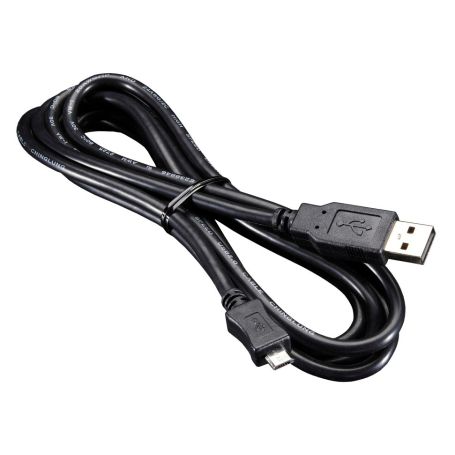Power USB cable, A/MicroB, 2m
USB cable A/microB, 2 meters, power cable
Payments are secured by LyraCollect, a French payment collection company.
It is possible to delivered to your home, to a pick-up point or picked up by appointment at MCHobby
We prepare, pack and ship your orders with great respect and care.
Un câble USB microB conçu pour transporter plus de puissance
Here is a USB A to micro-B cable, designed for power hungry devices (USB 1.1 and/or 2.0).
Perfect for connecting a PC to any device equipped with a micro USB plug (BBB, Raspberry-Pi 2, Fona, Trinket, etc)
This cable is a power cable, it is made with a thicker copper wire (which goes beyond the USB standard), which allows to use it to circulate a current between 1 and 2 amps without causing significant voltage drop.
This cable is ideal for power hungry devices such as the Raspberry Pi 2 (which can consume up to 1.8A depending on the circumstances).
2 meters long, with a 26 AWG cable section this cable will have a lower resistance than the other USB cables. As the voltage drop is equal to USB_cable_resistance * current_in_USB_cable, the voltage drop will be lower... so you will be very close to the 5V at the other end of the cable.
It sounds futile but many of the problems with the Raspberry Pi 2 are caused by a poor quality cable (or power supply).
- Raspberry Compatibility
- Zero / Zero W, Pi 3A, Pi 3B+, Zero 2 W
- Interface : Connector
- USB : Type A, USB : microB





